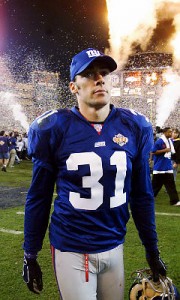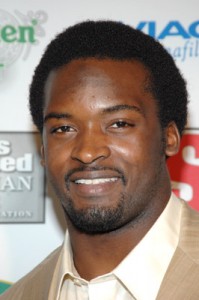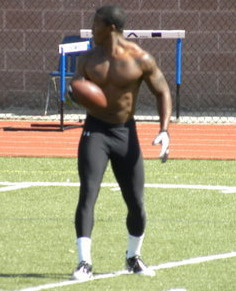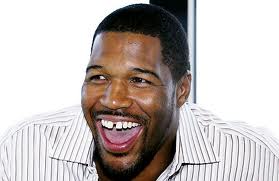
When former NY Giants CB Jason Sehorn wasn't (allegedly) almost being shot by Jayson Williams, he was a pretty good white cornerback.
Every now and then I run across an article that I simply must share. This one was in the NY Times and touched on racial stereotyping by position in the NFL. I loved it cause this came up a little last year with Peyton Hillis, a white running back, having a great season last year-and ending up on the Madden cover. Lots was made of the fact that white running backs are pretty much an endangered species. A week or so ago, I blogged about Green Bay Packers Jordy Nelson and his teammates saying people underestimate him cause he’s a white WR.
Even though there are still quite a few white WRs, the idea that black ones are more athletic still prevails. So to hear that there are zero white cornerbacks in the NFL right now and zero black kickers wasn’t surprising. I’m glad someone decided to take a look at the reasons.
By the time Bernie Parrish, a white kid from Florida, and Walter Beach, an African-American from Michigan, joined the Cleveland Browns as cornerbacks in 1959 and 1960, the majority of cornerbacks were white. There were unwritten rules and practices designed to keep it that way.
“We were still in that era of the quotas,” said Parrish, referring to the unwritten practice of allowing a select number of African-Americans on a team. “In 1959, I believe the quota of black players was 7; then it went to 13.”
There was also the practice of stacking, making sure African-American players competed for the same positions.
“There would be six or eight guys competing for my spot and nobody competing for his,” Beach said, referring to Parrish, who has become one of his closest friends. “That’s where the stacking concept comes from. They would stack black cats behind each other; that was a reality. If you came to the Cleveland Browns and you wanted to play cornerback, there were going to be five brothers over there behind me.”
All 167 cornerbacks listed on active N.F.L. rosters last Monday were African-American, although Julian Edelman, a receiver who is white, has played a few snaps at cornerback for the injury-plagued New England Patriots. The evolution to today’s rosters began with the emergence of the American Football League in 1960. While the N.F.L. maintained quotas and engaged in steering and stacking, the rival A.F.L. was snatching up talented players wherever it could find them, especially at historically black colleges.
“You had more black guys coming into the league who were receivers who could fly, and they had to have defensive backs who could fly with them,” Beach said.
At some point, white players stopped believing they could fly. No more protection from open competition; everyone had to prove himself on a level playing field. Like the success of black fighter pilots, the presence of 64 African-American starting cornerbacks in the N.F.L. is an American triumph of meritocracy over protectionism.
Now this hit home:
Young white athletes who might aspire to be N.F.L. corners can’t see themselves in that role.
“They’re going through the same thing that I went through when I wanted to play quarterback,” Newsome said. “ ‘Yeah, you can play cornerback, but by the time you get to college, they’re going to move you to safety.’
“I think the stereotype can affect your mentality. If you grow up not seeing something and hearing something your whole life, that starts to impact you: ‘I can’t do this, I’m not good enough to do that.’ And that becomes a part of your life.”
A similar phenomenon is seen in the kicking game. There are no African-American punters or kickers in the N.F.L. While white athletes shy away from cornerback because, in their minds, it requires too much athleticism, many African-American players eschew punting and kicking because it is not athletic enough.
I’ve heard lots of black folks make fun of kickers and punters as though they’re not a part of the team. So unfair. It takes a lot of skill and ability to do those jobs especially the way kickers are putting out 52+ yard field goals like it’s nothing.
Anyway I suggest you take a look at the article here, the author makes some pretty compelling comparisons.











